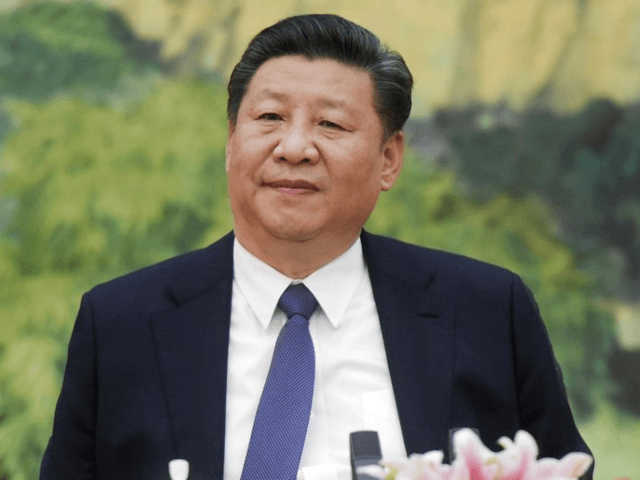WASHINGTON, DC — The overall breadth and scope of China’s Belt and Road Initiative (BRI), and China’s capacity to execute it, have been “exaggerated,” an expert witness from a conservative think-tank testified before a Senate panel on Wednesday, dismissing Beijing’s ongoing effort as a “red herring.”
Other witnesses, however, noted that BRI’s reach does present a menace to the United States.
Launched by communist China’s authoritarian Communist Party leader Xi Jinping in September 2013 as the One Belt, One Road project (OBOR), the BRI aims to link Beijing to Europe, Africa, and the Western Hemisphere through a massive network of land and sea routes as well as technology. In its final form, it would grant China near-total control of all major transportation infrastructure in the world.
In written testimony prepared for a hearing Wednesday by the Senate Finance Subcommittee on Global Competitiveness, Derek Scissors, a former international economics official at the Pentagon who now works at the conservative American Enterprise Institute (AEI), urged lawmakers not to “overreact” about the potential BRI repercussions for the United States.
Scissors wrote:
China cannot fund a truly global BRI and odds are better that financial constraints will tighten rather than loosen. Beijing will inevitably focus on what it sees as the most important countries. On economic grounds, these are the richer countries in Southeast Asia for export markets and the Arab world for oil. American policy should anticipate where China’s gaze will finally land and evaluate to what extent this very select set of countries calls for a US response. The BRI as a whole has become a red herring.
…
What the BRI has been to now is often mildly exaggerated, where it is headed is in some cases greatly exaggerated. Investment volume and growth peaked in 2015.
Witnesses from the U.S.- China Economic and Security Review Commission and the liberal-leaning Center for a New American Security (CNAS) warned lawmakers that the BRI poses a threat to the United States.
In her written testimony, Carolyn Bartholomew, the commission’s chairwoman, said:
There are steps the United States can and must take to address BRI’s challenges to our economy and to the international order. We clearly cannot outspend the Chinese government in Belt and Road countries, but we can act to shape China’s BRI efforts to meet international standards and offer targeted alternatives in key areas to counter emerging risks.
Along with Daniel Kliman from CNAS, she praised Congress for passing the bipartisan Better Utilization of Investment Leading to Development (BUILD) Act in October 2018 to counteract China’s BRI.
Bartholomew described the bill as “an important tool to support vitally needed private sector investment in low and lower-middle income countries, particularly to small and medium-size enterprises.”
“We must strengthen our relationships with countries in Africa, in Latin America, in Southeast Asia, indeed in Europe, to counter the Chinese government’s [BRI] propaganda and spread of its authoritarian norms,” she added.
Unlike Scissors from AEI, Kliman argued that the BRI has “momentum on its side” in his written remarks.
Kliman testified:
Many states find themselves unable to pull away from China, both for fiscal reasons as well as domestic political ones – with Beijing frequently exercising lingering influence while awaiting and abetting the restoration of sympathetic elites. Most critically, even countries that have become relatively skeptical about the Belt and Road still perceive few meaningful alternatives to infrastructure projects involving China.
He went on to say that the BRI is already “eroding the foundation” of the U.S.-led international order.
Kliman predicted that the BRI is likely to make China’s People’s Liberation Army (PLA) more global.
“With Chinese investment and workers fanning out to distant and sometimes dangerous regions, Beijing will increasingly grapple with circumstances that warrant deploying the PLA overseas,” he explained, later adding, “This will create new risks for the U.S. military.”
Kliman cautioned that Beijing will “attain lasting diplomatic leverage” over BRI recipient countries, including those in the Western Hemisphere.
He also warned that China is using its influence in the United Nations to legitimize BRI.
Scissors, however, told lawmakers that there are several myths to dispel about the BRI, adding:
[BRI is] worth trillions – false. China is buying up the participating countries – if so, only in self-defeating fashion. …Perhaps the most important mistake is that the BRI represents a growing Chinese footprint globally. It did in 2016, not now. More countries are joining the BRI in name but the extent of activity is shrinking. Moreover, inadequate foreign currency reserves means Beijing will be hard pressed to keep the BRI afloat as a global commercial effort.
U.S. President Donald Trump’s administration is already weakening the BRI, the AEI expert said, noting that the initiative cannot afford the tariffs stemming from the ongoing trade dispute between Washington and Beijing.
“The BRI presently depends on American consumers buying Chinese products and can be paralyzed for an extended period just by making those products more expensive,” he told lawmakers. “Such actions, of course, have costs for the US, though they are not especially large (unless combined with 25- percent across-the-board tariffs on Mexico).”
China can no longer afford the billions in hard currency needed to spring the “debt traps” the Trump administration has repeatedly warned about, he added.

COMMENTS
Please let us know if you're having issues with commenting.